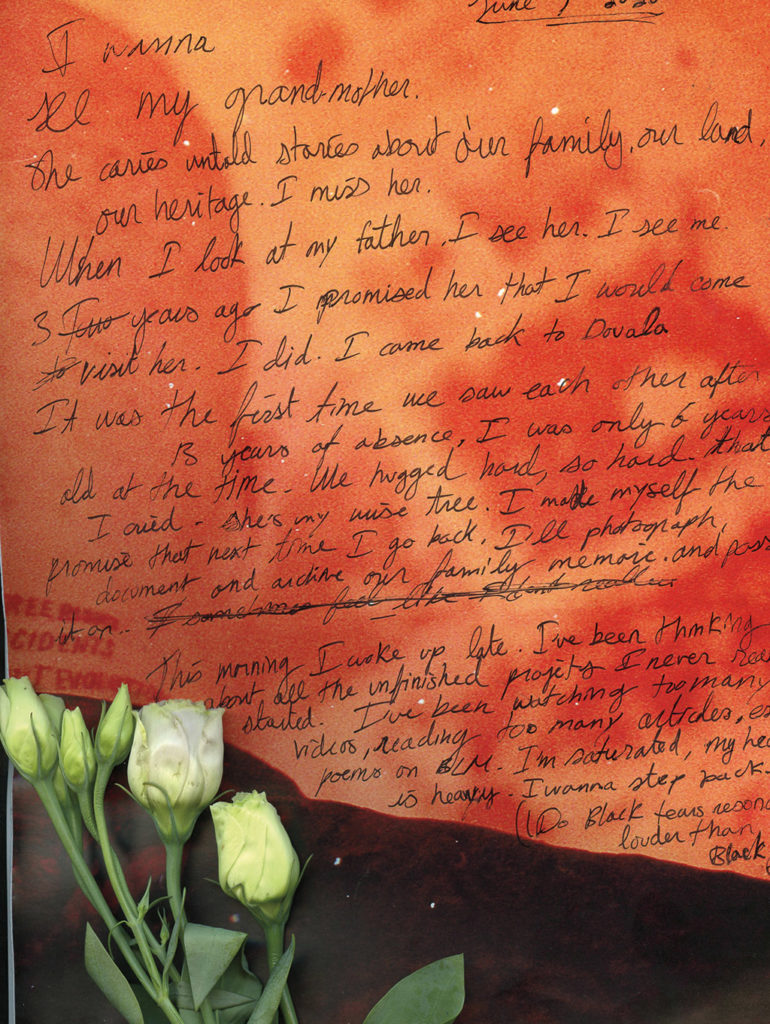A Black woman, thinly veiled by delicate, transparent fabric, crouches with arms outstretched in a shallow body of water. A Brown body covered in wet red clay digs fingers deep into the earth. Two women calmly embrace on a rugged beach. Centring her attention on Black people in nature, queer Montreal-based photographer and art director Mallory Lowe creates images that are simultaneously tranquil and mighty. In her words, “The bulk of my work relies on aesthetically driven visual storytelling rooted in transcultural, pan-African, and intersectional narratives.”

Mallory Lowe, What is this home that is home that is not home; inkjet print on Hahnemühle photo rag, 30 × 36.
Her latest exhibit, “What is this home that is home that is not home,” is a series that documents BIPOC’s relationships to land. “I’ve lately been very aware of how racism and capitalism determine who gets to enjoy nature, who has access to nature and land.” Because of pandemic restrictions, Lowe began spending more time in nature, where she began questioning her own Afro-European identity and sense of belonging on colonized land. “I started to wonder how racial and ethnic differences were shaping people’s relationship and connectedness to nature and landscape,” she recounts.
For Lowe, BIPOC’s relationships to their ancestral lands are deeply embodied. “Our bodies act as mnemonic agents in how we relate to places wherein our ancestors lived,” she says. This is reflected in the many close-ups contained in her exhibit: hands, arms, shoulders, a crown of black hair displaying traditional African threading.

Mallory Lowe, Letter to myself, June 2020.
She similarly uncovers BIPOC’s interior landscapes, offering up the possibility that diasporic populations carry their homelands within. “Travelling from one place to another, what connects locations is what lives within us—the simultaneity of time.” Ultimately, Lowe’s success lies in her ability to skillfully capture in images something as vast and ineffable as BIPOC’s relationships to the natural world.
Mallory Lowe’s limited-edition prints are available for sale through Saatchi Art.

